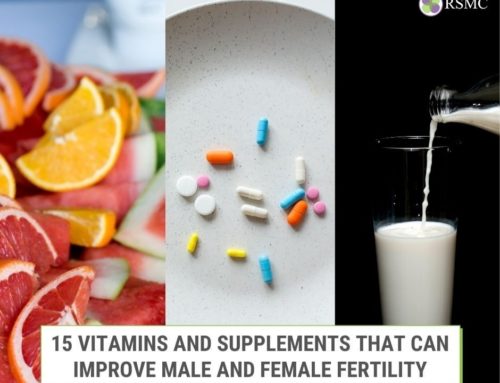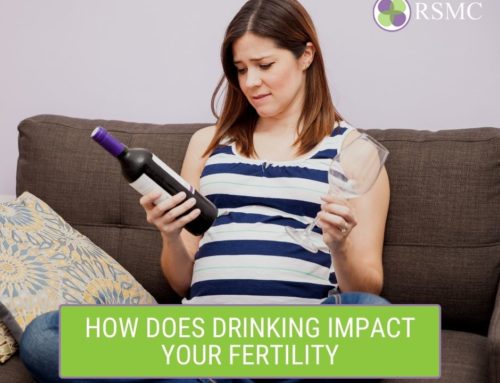Here are 7 Things Women Can Do to Boost Fertility before Consulting with a Specialist
Check your weight. Normal weight is considered to be a BMI between 18.5 and 24.9, which is the optimal range for female fertility. If a woman is overweight or obese she has a two-fold increase in the time it takes her to conceive. The normal production of estrogen is increased in overweight women and abnormal hormone levels can interfere with conception. If she’s underweight, with a BMI under 19, it’s even worse, she has a four-fold increase in the time it takes her to conceive.
- Eat a nutritious diet. The food you eat can affect fertility, many nutritionists recommend healthy fertility diet changes while a woman is trying to conceive.
- Eat more complex carbs and limit highly processed ones. Your body digests bad carbs (like cookies, cakes, white bread and white rice) quickly, and turns them into blood sugar. To drive down the blood-sugar spike, the pancreas releases insulin into the bloodstream. Good carbs (those containing fiber, such as fruits, vegetables, beans and whole grains) are digested slowly and have a more gradual effect on blood sugar and insulin.Some studies have shown that high insulin levels appear to inhibit ovulation.
- Avoid all trans fats and eat healthy unsaturated fats. Trans fats (found primarily in foods such as commercial baked and snack foods, animal products, French fries and some margarines) increase insulin resistance. Insulin helps move glucose from the bloodstream to the cells; resistance means it’s harder to move glucose into the cells. The pancreas keeps pumping out more insulin anyway, and the result is more insulin in your bloodstream. High insulin levels cause a lot of metabolic disturbances that have been shown to interfere with ovulation.
- Get more protein from plant foods and less from red meat. Plant protein (from beans, nuts, seeds and tofu) comes with healthy fats and is relatively low in calories.
- Consume one or two servings a day of whole milk or other full-fat dairy foods, such as yogurt, and less non- and low-fat dairy. There’s something in the dairy fat that helps prepare the body for pregnancy, so you should include some full-fat dairy products in your diet.
- Take a daily multivitamin that contains at least 400 micrograms of folic acid and 40 to 80 milligrams of iron. Since folic acid is extremely important in the first couple of weeks after conception, starting to take vitamins with folic acid and iron before starting to try to conceive will help insure the health of the baby.
- Limit your intake of caffeine and alcohol. You should limit your intake of caffeine to less than 200 milligrams a day (the amount contained in one to two eight-ounce cups of coffee). Excessive alcohol consumption has been linked with anovulation (no ovulation), amenorrhea (no periods), and abnormalities with the endometrial lining. Alcohol can also alter estrogen and progesterone levels. To be on the safe side, especially since you don’t want to be drinking while pregnant, it’s best to cut alcohol consumption to less than one drink a day.
- Give up smoking. Smoking is toxic to the reproductive system, women who smoke go through menopause an average of two years earlier than women who don’t. Smoking is also strongly associated with an increased risk of miscarriage and ectopic pregnancies.Your partner shouldn’t smoke either, it can affect his fertility and is not something you want around your baby when it’s born.
- Track your cycle. Fertility in women can be tracked either using the traditional calendar method or a commercial fertility monitoring test. To track it yourself you need to determine the average interval between consecutive first days of your menses and subtract 14 days. This will yield your most likely date of egg release. Example, if you have 28-day cycles, subtract 14 and your egg should be released on Day 14 of the cycle.
- Have sex at your peak fertility time. Since the egg can live in the reproductive tract for about 36 hours and sperm can live there for up to five days, if you have intercourse for the five days before, and on your day of, ovulation you maximize your chances of conceiving because the sperm are around the egg as it’s being released.
- Both partners should have an orgasm. The man is going to have an orgasm for this to work, but it helps fertility if women has an orgasm also. The contractions of the uterus after orgasm will help the sperm along.
- Have sex at least every other day around the time of ovulation. While daily sex has shown to have a slightly higher pregnancy rate, having sex every other day has almost the same success rate while putting less stress on the couple to “produce” daily.
Key Takeaway
A healthy lifestyle, and keeping insulin levels under control, are key to female fertility and a woman’s ability to conceive. These steps will help promote fertility in women by getting their bodies in optimal shape to conceive. If you’re still having problems conceiving after following these guidelines for several months, it’s time to consult a fertility specialist.


 Check your weight. Normal weight is considered to be a
Check your weight. Normal weight is considered to be a 




















